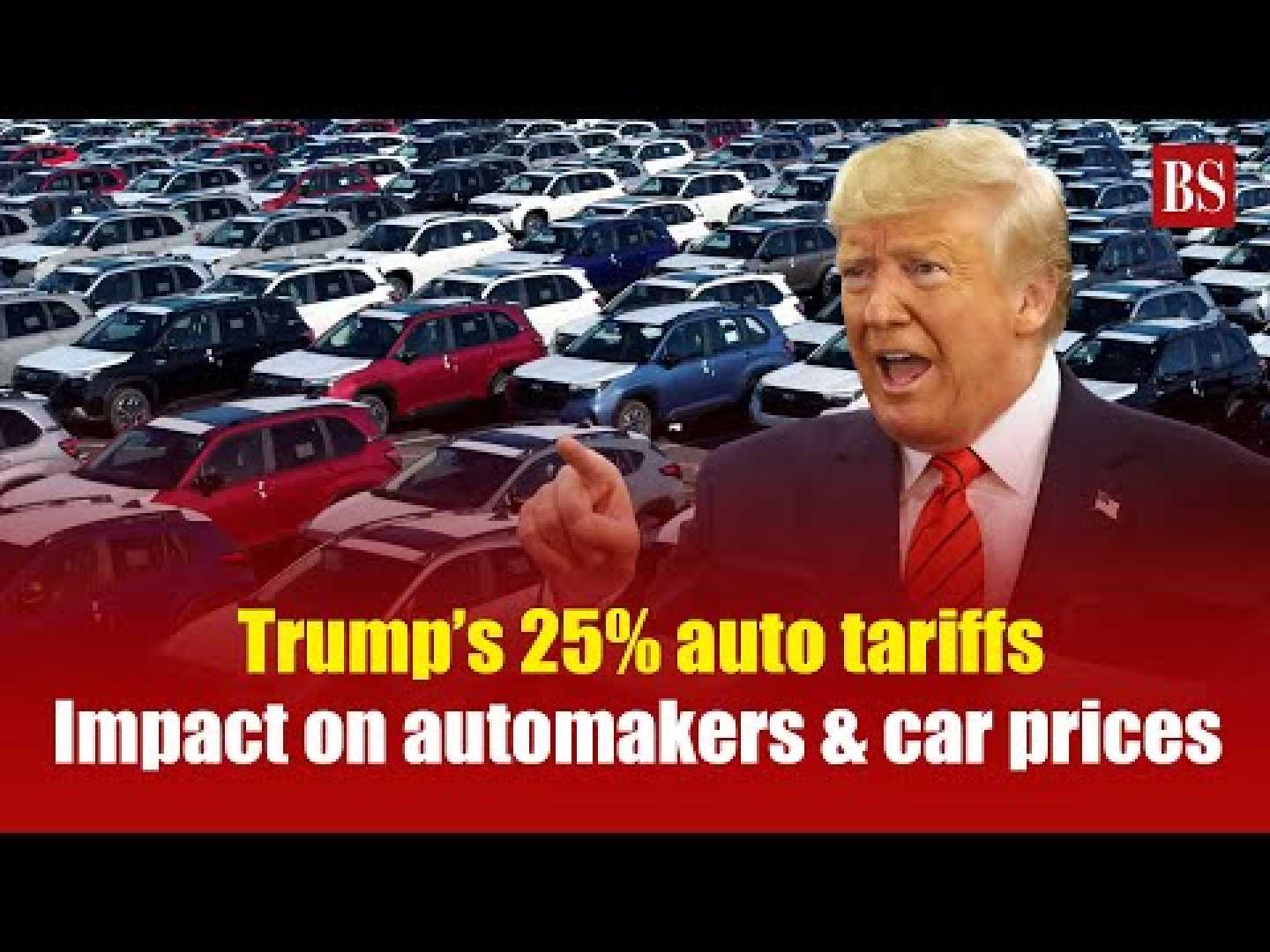Business
Trump’s New Tariffs Threaten Car Prices and Auto Industry’s Future

DETROIT, Mich. — President Donald Trump‘s newly announced 25% tariffs on imported cars, light trucks, and auto parts are set to take effect on April 3, raising concerns about the rising cost of vehicles for American consumers. The tariffs aim to boost domestic manufacturing but could complicate global supply chains for automakers reliant on international parts.
The price increase could be significant, with Goldman Sachs estimating that the tariffs could raise prices per vehicle by $5,000 to $15,000, depending on the make and model. “It’s going to have the effect of forcing companies to increase U.S. content if they want to dodge the import taxes,” said Richard Mojica, a trade attorney.
President Trump has long positioned auto imports as a threat to national security, using this rationale to justify imposing tariffs. In a press conference, he stated, “If the European Union works with Canada to do economic harm to the USA, large-scale tariffs will be placed on them both.” With the tariffs scheduled to roll out soon, many automakers are reassessing their production strategies.
While the U.S. aims for self-reliance in automotive manufacturing, the reality is more complex. Companies like General Motors, Ford, and other major players depend on a mix of domestic and imported components. For instance, at least 60% of sales from major brands like Volvo and Hyundai in the U.S. were sourced from abroad, according to S&P Global Mobility.
The potential for retaliatory actions looms large. Canadian Prime Minister Mark Carney indicated that Canada would respond to the tariffs with trade actions of their own, maximizing impact on the U.S. market while minimizing damage at home. “We will fight the U.S. tariffs with retaliatory trade actions of our own that will have maximum impact in the United States and minimum impacts here in Canada,” Carney said.
Auto stocks reacted negatively to the announcement, with General Motors shares dropping over 7% and Ford down 3.9%. Analysts suggest the tariffs may lead to job cuts and higher prices for consumers already struggling with vehicle affordability. Sam Fiorani, an analyst at AutoForecast Solutions, noted, “The tariffs will likely send buyers to the used market, where prices are already high due to low inventory. Imagine the price rises during the semiconductor shortage, stretched across every brand and manufacturer.”
Experts have warned that the tariffs might not benefit U.S. workers as intended. The predicted increase in vehicle prices could hinder sales, slow down economic recovery, and potentially lead to layoffs in the industry. Beata Caranci and Andrew Foran from TD Economics stated, “This could push prices up to $10,000 more if the tariffs apply fully to cars made in Mexico and Canada.”
Moreover, the automotive industry is still recovering from the impacts of the COVID-19 pandemic, and the new tariff structure adds another layer of complexity and uncertainty. Automakers now face the daunting task of adjusting their operations to incorporate a higher percentage of U.S.-sourced parts.
The United Auto Workers union expressed support for the tariffs as a measure to combat declining labor conditions in the auto industry. UAW President Shawn Fain stated, “These tariffs are a major step in the right direction for autoworkers and blue-collar communities across the country.” In contrast, Jennifer Safavian, CEO of Autos Drive America, criticized the tariffs, arguing they would lead to fewer consumer choices and potentially more job losses in U.S. manufacturing sectors.
As the landscape quickly evolves with global suppliers like Mexico, Japan, and Germany also weighing their retaliatory options, the future of U.S. auto manufacturing remains uncertain.












